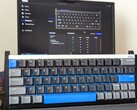
One of the best game sequels ever made, it is even more relevant in 2025
CheckMag
Metal Gear Solid 2 took the stealth action of the first game and pushed it to a whole new level. It surprised players with bold story choices and twists that still spark debate over two decades after its release. That's why MGS2 is easily one of the best sequels ever made.Anubhav Sharma 👁 Published 🇪🇸 🇵🇹 ...
If you're a late 1990s/early 2000s gamer, you are most likely familiar with Metal Gear Solid. Granted, it gained popularity majorly as a PlayStation hit, but it was also a statement about what video games could be. Hideo Kojima’s cinematic approach to stealth gameplay contained two key elements for games at the time - tense, methodical action and an unusually ambitious narrative. I myself didn't get to play MGS 1 and 2 until way later in 2010 or 2011.
In game 1, players were learning about genetic engineering, nuclear deterrence, and the personal baggage of soldiers caught in geopolitical games. Its cutscenes borrowed the language of film, its voice acting was so much better than most contemporaries, and its willingness to break the fourth wall - like Psycho Mantis reading your memory card - was a fantastic showcase of Kojima's lack of interest in staying inside the lines - something he still continues doing to this day (take Death Stranding, for example). But that was just the first MGS game.
Fans came away expecting Metal Gear Solid 2: Sons of Liberty to be more of the same, only bigger and better. In the run-up to its 2001 release, everything they saw added more fuel to that same belief: flashy trailers full of Solid Snake infiltrating a massive tanker, stealth mechanics made better for the PlayStation 2, and the return of the high-stakes world of the first game. On the surface, it was exactly the sequel fans wanted.
And that’s where the trick began.
The first couple of hours delivered on the marketing. Snake snuck onto the tanker in the middle of a rainstorm, guards were sharper than before, and the new mechanics - like first-person aiming - gave players more control. Then, the narrative flipped. Snake was gone, and in his place was Raiden, a rookie operative with none of Snake’s history, experience, or grit. For returning players, it was expectation subversion at its finest.
Through Raiden, the player became an outsider of sorts. Snake was now a legendary figure seen from the periphery, and the mission itself felt like a shadow of the first game’s events. This was very much intentional. Instead of simply telling another story, Kojima was commenting on the act of retelling stories, on sequels themselves, and on the relationship between audience and narrative.
The deeper into the game players went, the stranger it became. In-game radio conversations (called Codec calls) that usually gave clear, reliable instructions to the player gradually started coming apart. The Colonel’s voice started giving nonsensical advice, spouting trivia, and eventually breaking the fourth wall entirely with lines like "Turn off the console" and "You’ve been playing the game for too long." It was absurd and baffling, to say the least - especially for players back then.
Behind the stealth missions and boss fights was a theme which was far more unusual for a blockbuster video game in 2001: information control. The S3 Plan (the in-game project supposedly designed to create the perfect soldier) turned out to be less about physical training and more about manipulating knowledge and perception. In a mostly pre-social media world, Kojima was telling a story about twisted truths, manipulated realities, and the power structures that decide what people get to know. All this is way more relevant today than it ever was, in fact. In an era of deepfakes, algorithm-driven news feeds, and weaponized misinformation, its warnings about the fragility of reality feel almost prophetic.
'Polarizing' is a fitting word to encapsulate the reception of MGS2 at launch. Most players were instant fans of the new game. I mean, of course - it had higher-fidelity graphics, smarter AI, and more flexible stealth options. However, a fair number of gamers were divided on the narrative’s complexity and Raiden’s role. Some players felt cheated by Snake’s absence. Nonetheless, as the years passed, MGS2’s reputation shifted drastically.
Mechanically, it still played like a finely tuned evolution of the original. Guards reacted well to sound, tracked footprints, and worked in teams to flush you out. Environmental interactivity, such as shooting radios to distracting enemies with tossed items made the stealth sandbox even better. Yet these improvements were almost like a smokescreen. Kojima used them to make players comfortable before gradually dismantling their sense of control.
Of course, like every game (except Hades), MGS2 isn’t without its downsides. The pacing stutters in more places than one. Long codec conversations that can feel somewhat glacial to modern audiences. Mid-game backtracking asks for a lot of patience, and Raiden’s lack of charisma compared to Snake still stings some players. But the ambition is there - and the narrative, plus the way it folds the player’s own expectations into its argument, largely overshadows those faults.
More than two decades later, Metal Gear Solid 2 has unanimously established itself not only as a straightforward sequel, but also as an experiment disguised as one. It lied to its players so it could show them how easily they could be lied to. It hid its real story in plain sight, using a blockbuster stealth-action framework to introduce players to a cautionary tale about the stories we choose to believe.
I'd say in 1998, Metal Gear Solid showed the industry that games could tell stories like movies, while in 2001, Metal Gear Solid 2 came back to show that they could tell stories about stories. And it did a fantastic job, if I might add.
Source(s)
Own, SomeOrdinaryGamers, TheCyanMan, Steam
Featured image: Fan art by u/cokeadope on r/MetalGearSolid subreddit
















